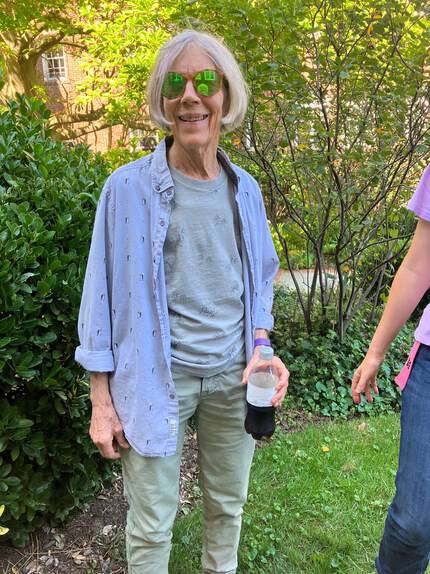What it Means to Live in a Co-operative ResidenceWhile uncommon in Baltimore, co-operative residential buildings are a fixture of city life in D.C. and New York. A housing co-operative is constituted when residents decide to democratically manage an apartment building, jointly taking responsibility for its maintenance and related affairs. As opposed to a condo, in which residents own a unit, residents of Calvert Court purchase shares in the corporation, entitling them to not only private apartment space but a voice in how the whole property is managed. Like a condo, residents pay a monthly fee towards the management of the building, but unlike a condo, cooperative management allows for lower fees and greater control over one's housing.
|
Calvert Court at a Glance
When purchasing an apartment at Calvert Court, residents are actually purchasing shares in the corporation through which the unit is leased. In becoming a shareholder of the corporation, residents sign a proprietary lease that stipulates adherence to the rules and regulations of living in the building. Monthly fees are assessed according to size of apartments and are due on the first of each month.
Calvert Court is managed by a Board of Directors, elected by shareholders, who meet monthly to review on-going business, set budget and maintenance priorities, receive committee reports, and invite dialogue with individuals shareholder concerns. An annual meeting of the Board and shareholders is held in December, at which time a budget is proposed and approved–including the setting of monthly fees–and a new Board is elected for the following year.
Given that all shareholders have financial stakes in the well being of the property, individual shareholders are encouraged and expected to participate in its management, which may include helping with ad hoc projects or serving on committees. As a community of professors, lawyers, accountants, architects, engineers, and other professional leaders, many are able to contribute their unique talents in maintaining Calvert Court's historic property.
Calvert Court is managed by a Board of Directors, elected by shareholders, who meet monthly to review on-going business, set budget and maintenance priorities, receive committee reports, and invite dialogue with individuals shareholder concerns. An annual meeting of the Board and shareholders is held in December, at which time a budget is proposed and approved–including the setting of monthly fees–and a new Board is elected for the following year.
Given that all shareholders have financial stakes in the well being of the property, individual shareholders are encouraged and expected to participate in its management, which may include helping with ad hoc projects or serving on committees. As a community of professors, lawyers, accountants, architects, engineers, and other professional leaders, many are able to contribute their unique talents in maintaining Calvert Court's historic property.
Benefits of a Cooperative
|
As opposed to a condo, where monthly fees may only cover management expenses, Calvert Court's fees include:
The draw of Calvert Court for many, however, is the opportunity to live in an historic building in the heart of the city. Featuring a brick exterior, accented with stucco trim and a Spanish tile roof, the building's dramatic presence in Charles Village is matched only by its expansive and well-manicured courtyard. In the springtime, residents are often found relaxing under the blossoming magnolia tree or sipping coffee by the herb garden on the South Bank. Most units boast 9 foot ceilings, working fireplaces, and original hardwood floors throughout; some units feature peaceful balconies, bright solariums, or inviting Palladian windows. Calvert Court is home to a diverse and welcoming community of professionals and retirees, committed to preserving a piece of Baltimore history. |




